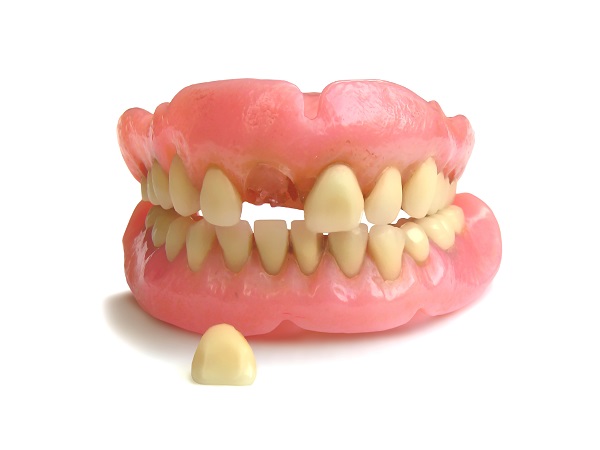3 Different Options for Replacing Missing Teeth

If you are missing teeth, it can be both a cosmetic annoyance and a health issue. Luckily, your dentist can treat this issue and help you regain a beautiful smile. There are various effective solutions you can choose from. Your dentist can discuss the benefits and drawbacks of each of these so you can make the right decision.
How teeth go missing
Permanent teeth are not meant to fall out. However, even though teeth are the strongest substance in the body, damage can occur. Poor oral hygiene such as lack of brushing and flossing can lead to cavities, infections and gum disease. When the person does not care for these conditions, the dentist may not be able to save the tooth, or it may even fall out. Trauma from injuries and accidents can also dislodge teeth. This may occur from a slip and fall or from a hard blow to the face while playing sports.
Bridges
A dental bridge closes the gap between existing teeth. This apparatus replaces missing teeth by placing crowns over natural teeth and artificial teeth in the spaces. The crowns act as anchors to the artificial tooth. Bridges help to properly distribute the bite force and keep the shape of the mouth. Another advantage of choosing this option is that it keeps surrounding natural teeth from shifting out of place.
Dentures
This mouth appliance consists of a gum-colored acrylic base and metal artificial teeth covered in plastic. Patients can choose full dentures as a solution to replace all teeth. Partial dentures are available for people who are missing multiple teeth but have healthy natural ones remaining. Most dentures are removable, allowing the wearer to clean them by rinsing and brushing. It is also important to soak them overnight in a solution. Dentures are natural-looking and help the person to speak and eat normally.
Implants
Though titanium implants require a more significant financial commitment, this option is more durable. Dental implants can last 20 years or more, especially if the patient brushes regularly and avoids hard foods. The dentist will insert a screw-like post into the person’s jaw and attach an abutment to it. On top of the abutment is a crown that resembles the color and shape of the natural teeth. This option for replacing missing teeth can take several months, as the dentist will allow time for the patient’s gums and jaw to heal after each step in the process. Dental implants are a good choice for people who are missing one tooth or several teeth.
Replace your missing teeth
Before you decide what is best to replace your missing teeth, evaluate all three of these options. Each of these has pros and potential disadvantages. Your needs and preferences should guide your decision-making. Your dentist can also help you and give a recommendation of what makes the most sense. It can be difficult to live without teeth. Call your dentist today and discuss the various replacement solutions. Before long, you can have the smile you have been looking for.
Are you considering replacing your missing teeth in the South Bend area? Get more information at https://www.michianafamilydental.com.
Check out what others are saying about our dental services on Yelp: Missing Teeth in South Bend, IN.
Related Posts
Dental crowns are used for numerous reasons to benefit patients, and cosmetic dentistry is one of them. A crown is a synthetic replacement tooth that is placed over a damaged one to provide a more natural and uniform appearance in the mouth. Some dentists use crowns to repair damaged teeth, but they may also be…
There are several situations where a patient may need to undergo oral surgery in order to address a dental health issue or to make a cosmetic alteration to the mouth. While some types of surgery may require collaboration with an oral and maxillofacial surgeon, there are several procedures that can be performed right in the…
A broken tooth is one of those injuries that always seem to happen at the worst possible times. A common way that people chip or break teeth is by biting on something hard. Such injuries are more likely to occur when the tooth has already been weakened by tooth decay.The severity of the damage to…
Gum disease treatment addresses the root source of the disease and halts the ramifications. Gum disease, or periodontal disease, is a common condition that damages the gums and the structures that support the teeth. If left untreated, it can cause serious problems, including tooth loss. The good news is that if caught early, these treatments…
